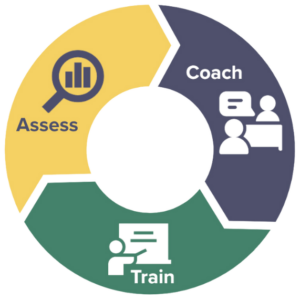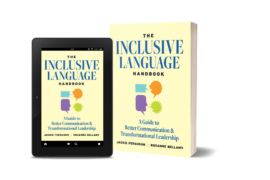Now more than ever, people are talking openly at work about issues of identity, marginalization, and oppression. While it’s important to have these tough conversations, it’s equally important to remember how taxing they can be to the people most affected by the issues at hand.
Even well-intentioned allies can sometimes make the mistake of placing an undue burden on others by asking them to talk about sensitive — and often deeply personal — topics. To be an ally without putting others in an uncomfortable situation, consider this article your short guide to approaching difficult diversity-related conversations.
Be Proactive About Educating Yourself
When you’re trying to learn more about a particular issue, it’s only natural that you’d want to hear from those who are most affected by it. However, it’s also important to remember that no one has an obligation to educate you, except yourself. Let’s say you want to learn more about the struggles that transgender people face. Instead of asking your transgender colleague about the issue, which may lead to a conversation that is tiresome and triggering for them, start by doing your own research on your own time.
You’ll be amazed at the wealth of free educational resources you can find with just a quick internet search. It’s important to note, however, that some questions can only be answered by people who have the lived experience to comment on them. Be sensitive in these situations, and always ask permission before you pose a question. Some people may be eager to share while others will prefer not to, or not at that time.
Also keep in mind that no one person can or should be asked to speak for an entire population demographic. For example, be careful not to frame your transgender friend as a spokesperson for all transgender people.
Consider The Context
Many people feel comfortable discussing their personal struggles with identity and marginalization in a dedicated safe space — for instance, with a group of close friends in the privacy of a home. However, they may not be eager to have these conversations in the workplace. When you think about it, there are probably topics that you enjoy discussing with friends but would never broach with a work colleague. Keep in mind the emotional weight that these conversations hold for many people, and be sensitive to their needs.
In an office environment, it can often be hard to say “no” to engaging in conversations. You can’t always expect people to speak up when they’re feeling uncomfortable. Be mindful of both verbal and non-verbal cues that indicate a colleague wants out of a conversation, such as stilted responses and closed body language. If you notice any signs of discomfort, change the topic or find another way to quickly and politely end the conversation.
Evaluate Your End Goal
While tough conversations can be productive and helpful to understanding, they are not guaranteed to be, especially when they require a great deal of emotional labor from the person with whom you’re conversing. Before you engage someone in discussion on a sensitive issue, ask yourself: What is my goal here? Is this for our mutual benefit? What am I trying to accomplish by having this conversation?
If you realize that the conversation is mostly for your own benefit — for instance, so you can learn more about an issue — try going a different route and exploring free resources online. Additionally, people may generally be more open to engage in conversations when they know that you have done some self-education. What questions remain? What do you want to dig deeper into with someone who can give you added perspective?
If, on the other hand, you realize that the conversation is meant to create a mutual dialogue, then it’s probably appropriate to broach this topic with your friend, teammate, or colleague. Some hard conversations are genuinely productive to all involved. For example, as an White ally to people of color, one of the most helpful actions you can take is having tough conversations about race with your White friends and family. In those cases, the end goal is a positive one: everybody involved will take something new and useful from the conversation.
Practice Empathy
The best way to approach any difficult topic is with empathy. Put yourself in the other person’s shoes, and imagine how they might feel about having this conversation. It’s much harder to go wrong when you lead with empathy, sensitivity, and compassion. However, even when practicing empathy, you may be unable to fully understand someone else’s thoughts and feelings, so always err on the side of caution and avoid making assumptions.
Remember that you don’t always know what hardships someone has experienced in their life, nor what kind of mental state they might be in at this moment. Be respectful of those who do not want to answer your questions about their experience, or who decline to engage with you on an issue that has affected them personally.
It can be hard to understand the emotional toll that these conversations often have, especially in a time when many people are being asked to have them over and over. Thankfully, empathy allows us to better understand where other people are coming from, even when we have not shared their experiences.
Knowing when to talk about or avoid hot-button issues can be tricky, but following these general guidelines will help you to become a better ally. To learn about another perspective on these conversations, read our article on “Engaging (Or Not) in Tough Conversations as a Marginalized Person.”
For help in creating a dedicated space to broach these issues or in cultivating a more inclusive workplace in general, contact us.














